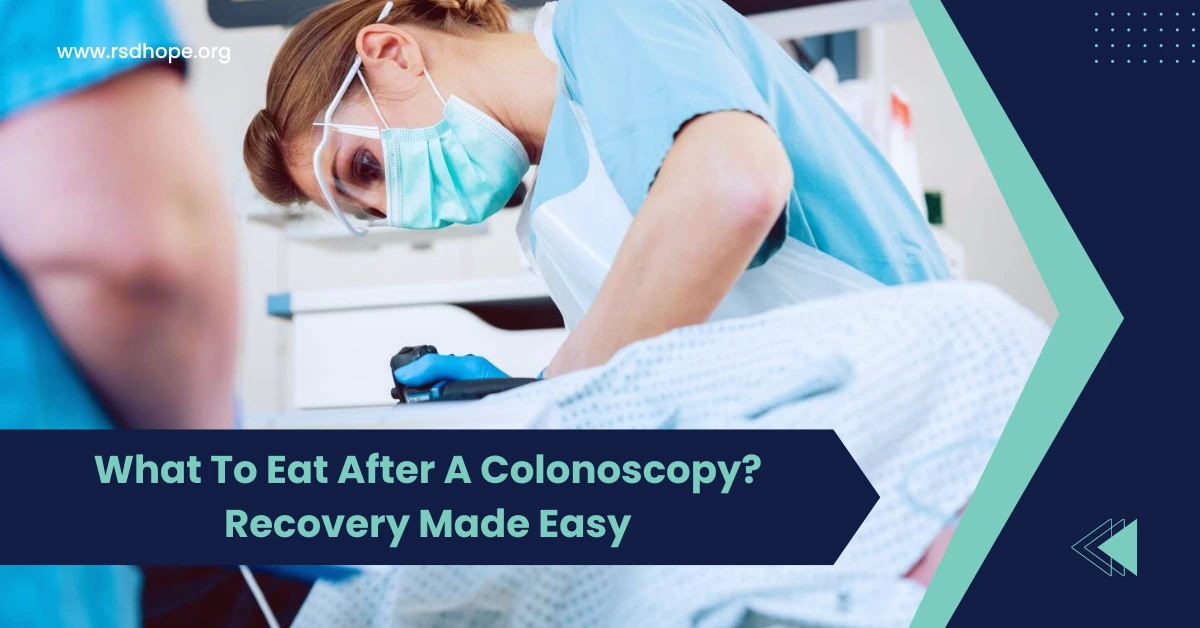A colonoscopy is a crucial medical procedure that allows doctors to examine the inside of your colon and rectum, checking for signs of cancer, polyps, or other abnormalities. This potentially life-saving screening is vital for detecting and preventing colorectal cancer, the third most common cancer in both men and women in the United States, according to the Centers for Disease Control and Prevention (CDC).
However, the importance of post-colonoscopy care, particularly when it comes to diet and nutrition, is often overlooked. In this comprehensive guide, we’ll explore what to eat and what to avoid after a colonoscopy to ensure a smooth and comfortable recovery.
Key Takeaways
- Gradually reintroduce gentle, easily digestible foods after your colonoscopy to allow your digestive system to recover.
- Avoid spicy, greasy, or high-fiber foods that can irritate your digestive tract, and steer clear of alcohol and caffeine.
- Maintain a healthy lifestyle with a balanced diet, regular exercise, and recommended screenings to keep your colon in top shape.
Understanding Colonoscopy
A colonoscopy is a diagnostic procedure that involves inserting a thin, flexible tube with a camera on the end into the rectum and through the entire colon. The purpose of this examination is to detect any abnormalities, such as polyps or tumors, and remove them if necessary. Preparing for a colonoscopy typically involves following a special diet and taking laxatives to clear out the colon.
During the procedure, you’ll be sedated to ensure comfort and will need someone to drive you home afterward. The benefits of a colonoscopy are numerous, as it can catch precancerous growths early, when they’re most treatable, and provide peace of mind about your colorectal health.
Also Read: 10 Worst Foods For Prostate Health
What to Eat After a Colonoscopy?
After your colonoscopy, it’s essential to give your digestive system time to recover by gradually reintroducing food. Start with clear liquids like water, apple juice, and clear broth, and slowly progress to more substantial, easily digestible foods as tolerated. Some recommended options include:
- Mashed potatoes
- Cooked vegetables (e.g., carrots, green beans)
- Scrambled eggs
- Yogurt
- Smooth nut butter
- White rice
- Lean proteins (e.g., chicken, fish, tofu)
Incorporating protein-rich foods into your post-colonoscopy diet can aid in healing and recovery. Just be sure to choose lean, easily digestible sources and introduce them gradually to avoid overwhelming your system.
What Not to Eat After Colonoscopy?
Equally important is knowing what foods and beverages to avoid after your colonoscopy. Steer clear of anything that might cause discomfort or hinder the healing process, such as:
- Spicy foods (e.g., hot peppers, curry)
- Greasy or fried foods
- High-fiber foods (e.g., raw vegetables, whole grains)
- Alcohol
- Caffeine
These items can irritate your digestive tract, cause dehydration, and disrupt the recovery process. Stick to gentle, nourishing foods until you feel back to normal, and always follow any specific instructions provided by your healthcare team.
Other Considerations After a Colonoscopy
As you recover from your colonoscopy, you may experience some side effects like bloating, gas, or cramping. These are usually mild and temporary, but if you’re uncomfortable, try:
- Taking a warm bath
- Placing a heating pad on your abdomen
- Going for a gentle walk to stimulate digestion
Staying hydrated is also crucial for recovery, so be sure to drink plenty of water and other clear fluids. If you have any concerns or questions, don’t hesitate to reach out to your healthcare provider for personalized guidance.
Best Practices for Taking Care of Your Colon
Maintaining a healthy colon involves more than just getting regular colonoscopies. Adopt these lifestyle habits to keep your digestive system in top shape:
- Eat a balanced diet rich in fiber from fruits, vegetables, and whole grains
- Stay physically active with regular exercise
- Maintain a healthy weight
- Limit alcohol consumption
- Don’t smoke
By prioritizing colon health, you can reduce your risk of colorectal cancer and other digestive disorders, setting yourself up for a lifetime of wellness.
Read More: How To Starve Bad Gut Bacteria? Take Control of Your Gut!
Conclusion
A colonoscopy is a powerful tool for detecting and preventing colorectal cancer, but the care you take after the procedure is just as important. By gradually reintroducing gentle, nourishing foods and avoiding items that might cause discomfort, you can ensure a smooth recovery and get back to your normal routine in no time.
Remember to stay hydrated, follow your healthcare provider’s instructions, and adopt healthy lifestyle habits to keep your colon in optimal condition. With the right post-colonoscopy nutrition plan and a commitment to overall digestive health, you’ll be well on your way to a happy, thriving colon.
FAQs
A: Generally, you can start eating solid foods once you feel ready, usually within a few hours of your procedure. However, it’s best to start with clear liquids and gradually progress to easily digestible solids to avoid overwhelming your system.
A: It’s advisable to ease back into your regular diet over the course of a day or two. Avoid spicy, greasy, or high-fiber foods at first, and stick to gentle, nourishing options like mashed potatoes, scrambled eggs, and cooked vegetables.
A: Yes, mild bloating, gas, and cramping are common side effects after a colonoscopy. These should resolve on their own within a day or two. If you’re uncomfortable, try taking a warm bath, using a heating pad, or going for a gentle walk to stimulate digestion.
A: Staying hydrated is crucial for recovery, so aim to drink at least 8-10 glasses of water or other clear fluids in the 24 hours following your procedure. This will help replenish fluids lost during the prep process and support your body’s healing.

